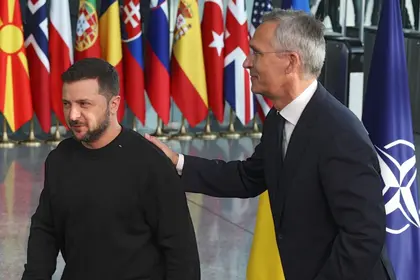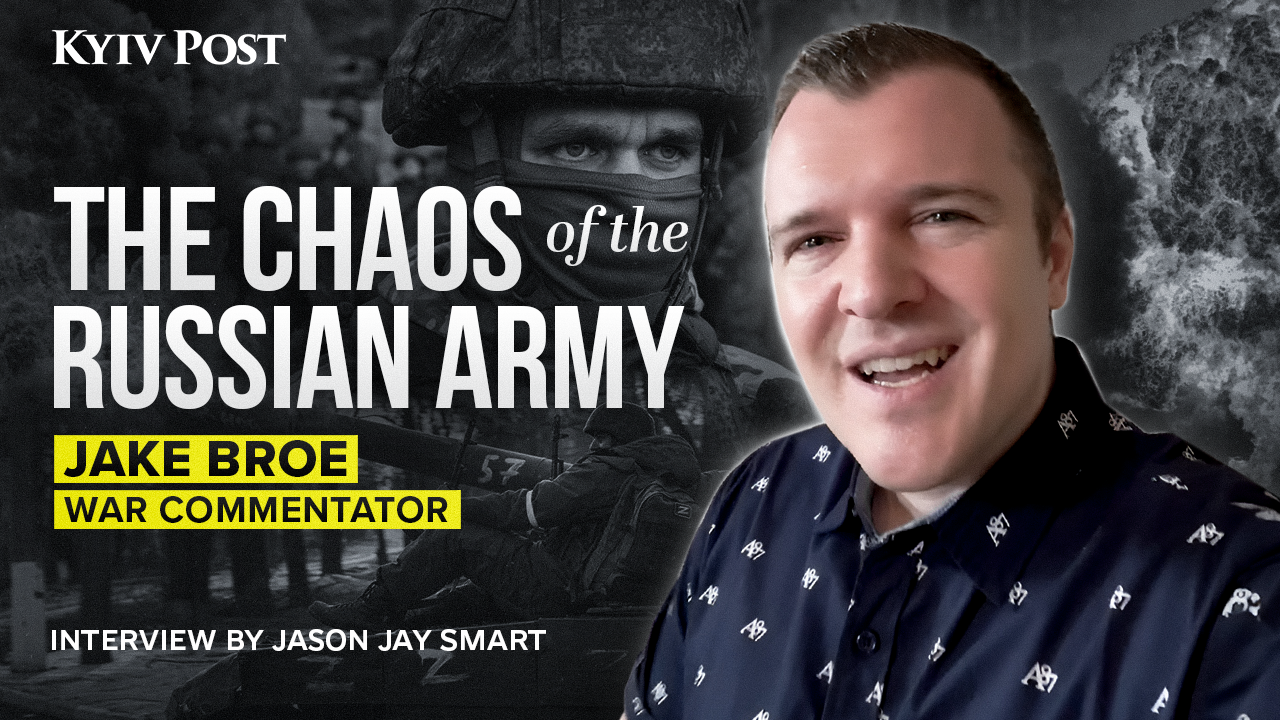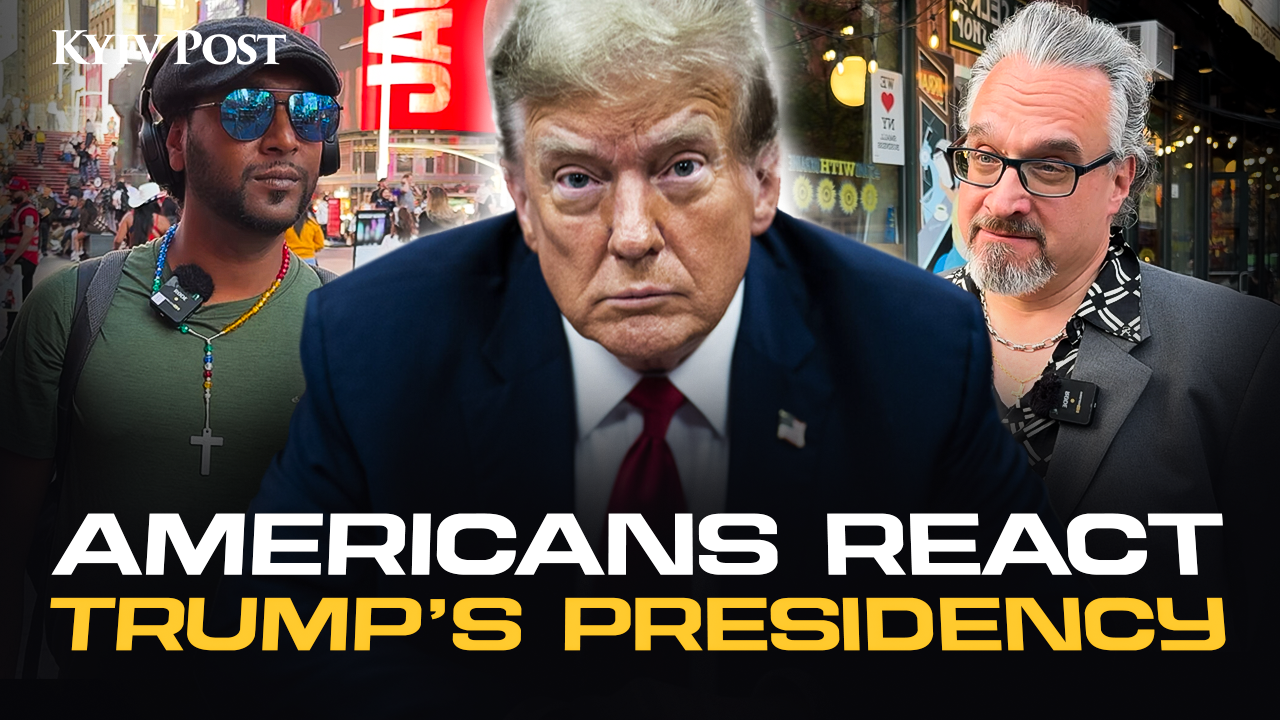From the editors: See part 1 here.
Ukraine’s Aims
JOIN US ON TELEGRAM
Follow our coverage of the war on the @Kyivpost_official.
The Ukrainian government under President Volodymyr Zelensky’s leadership is impressively clear on its aims.
First of all, it wants to defeat Russia in Ukraine and restore Ukrainian territorial integrity and sovereignty within the borders of 1991 recognized by all, including Russia until 2014. This means that Crimea must be returned to Ukraine. It is strategically essential. Without Crimea, Ukraine’s commercially vital Black Sea shipping cannot be safe. In multiple opinion polls, about 90 percent of Ukrainians throughout the country concur with this aim.
Second, Ukraine wants all its citizens who have been deported to Russia to be repatriated. According to Russian sources, this includes more than 700,000 Ukrainian children.
Third, Russia must pay war reparations for all the damage it has caused Ukraine. Last March, the World Bank assessed the damage at $411 billion. The United States and other Western countries should confiscate all Russian sovereign assets in the West and pass them on to Ukraine. The US Congress is currently considering such legislation, the REPO Act. It should adopt it.
Fourth, Ukraine demands security, which can only mean membership of NATO. After having given up its large nuclear arsenal to Russia in 1994 in exchange for “security assurances” from the United States, the UK and Russia, the Ukrainians understands that nothing less can grant them security.
Ukraine demands security, which can only mean membership of NATO.
Fifth, the International Criminal Court indicted Putin for his kidnapping of Ukrainian children. He and more than 100,000 Russians suspect of war crimes should be prosecuted wherever court capacity is available.
Finally, Ukrainians want their country to become a member of the European Union. It might take until 2030, but it is vital that the accession negotiations start as soon as possible, because the negotiations and the required legislation will take at least three years.
The Ukrainian nation is more united around these demands than ever. The Ukrainians will insist on these demands regardless of who their leader is. Professor Charles Tilly concluded famously that nations are forged by war (“war made the state”), and that is certainly true of Ukraine.
Russia Must Be Defeated
The united Ukrainians see things clearly, because they know that their existence as a nation is at play, whereas much of the West is confused, especially the two most important Western countries, the United States and Germany, though most European states have come to sound conclusions. The United States and Germany have most and the best arms and the biggest Western economies. Without their support Ukraine will find it much more difficult to win the war.
The big Western governments have got stuck with the confusing claim that they will support Ukraine “for as long as it takes,” carefully avoiding to state their goal. Strangely, some important people in Washington appear to be afraid of Russia’s defeat.
Thomas Graham is an outspoken example. They don’t want Russia to be destabilized, while that should be the U.S. aim. Like George H.W. Bush in his infamous Chicken Kiev speech in the Ukrainian Parliament in August 1991, they abhor instability in Russia and fear loose nukes.
Today it appears incredible that the United States compelled all former Soviet republics to give up all their nuclear arms to Russia. In their Budapest Memorandum of December 1994, the United States, the UK and Russia granted “security assurances” to Ukraine as it promised to give up its very substantial nuclear arsenal to Russia, but Russia violated it all by invading Ukraine.
In reality, the United States reinforced Russia’s nuclear and military superiority, which greatly facilitated its wars against Georgia in 2008 and Ukraine in 2014 and in 2022
The West needs to rethink. Its goal should be Ukraine’s military victory and a crushing defeat of Russia, because Putin’s regime poses a persistent risk of war, just as Adolf Hitler’s regime did. Putin is far more similar to Hitler than most Westerners have realized. He has started one war after the other and found that each war increases his domestic popularity and enhances his possibilities to increase repression.
Putin is far more similar to Hitler than most Westerners have realized.
The main difference between Putin and Hitler is that Putin is more deliberate, taking longer time to start each new war.
In January 1943, Winston Churchill and Franklin D. Roosevelt met in Casablanca. They agreed that there would be no negotiations with Hitler “for peace and ceasefire.” Their aim was Hitler’s “unconditional surrender”, as the only way to ensure postwar peace.
Similarly, today’s Western objective should be the unconditional defeat of Russia and Putin. That does not require the occupation of Russia or any march on Moscow. It suffices that Russia is defeated on the battlefield in Ukraine and is being forced to evacuate Ukraine.
After the West has clarified that its goal is Ukraine’s victory and the defeat of Russia, the rest follows. Then, the West would deliver all the arms Ukraine needs to defeat Russia as fast as possible. Time is vital.
The faster potent arms are delivered, the fewer Ukrainians, as well as Russians, will have to die, and the sooner peace may be established in Europe. Millions of Ukrainians live under Russian terror and need liberation. Furthermore, the financial and military cost will be less if the West delivers more arms faster. It is cruel, costly, and dysfunctional to drip-feed the Ukrainian Armed Forces as is currently being done. It is not a strategy, but the absence of strategy.
NATO Should Guarantee Ukraine Security through Membership
At present, Ukraine has by far the strongest military forces in Europe, 800,000 men and women under arms, and they have outstanding battle experience. Next year, Ukraine is intent on spending $47 billion or 22 percent of its GDP on defense, while NATO as a whole barely reaches 2 percent of GDP.
Rather than asking the Ukrainians to be grateful for all the Western support, the West should thank the Ukrainians for stopping the Russian threat against the West. While spending only three percent of the US defense budget, the eminent Ukrainian military has taken out half Russia’s conventional military force! No Pentagon expenditures have been that effective. Why doesn’t the United States optimize its most effective military expenditures?
Rather than asking the Ukrainians to be grateful for all the Western support, the West should thank the Ukrainians for stopping the Russian threat against the West.
The Kiel Institute for World Economy has a very useful Ukraine Support Tracker for all commitments to Ukraine since the start of the war in February 2022. The total support committed by the EU and its members amounts to €132 billion (of which €27 billion for military assistance), while the US commitment is €69 billion (of which €42 billion military assistance). Other important donors are the UK, Norway, Japan, and Canada.
These sums are minuscule when considering that Putin considers that he is pursuing a war against these countries, and surely will if he wins in Ukraine. Given that the total EU GDP in 2022 was €15.8 trillion, the total EU support for Ukraine was only 0.8 percent of GDP spread over three years and not necessarily delivered. The US GDP for 2023 is assessed at $26.2 trillion, rendering the US support even less.
Russia, by contrast, has a tiny GDP of currently $1.6 trillion, though it swings with the very unstable ruble exchange rate. Russia devotes $100-$160 billion to its military next year, that is 6-10 percent of GDP. The uncertainty depends on a large share of the Russian budget expenditures having been classified, and our assumption is that almost all of it goes to the military. In this perspective, the Western support to Ukraine is a pittance and could easily be multiplied with minimal impact on the standard of living.
The West needs to wake up and start devoting real resources to Ukraine and its endeavors – as the Baltic countries already do.
NATO and Ukraine need one another. NATO needs Ukraine for its defense against Russia, and Ukraine needs NATO as its future security guarantee. Since Putin does not claim that he is fighting Ukraine but NATO, Ukraine defends not only itself but NATO. Only full membership of NATO can guarantee Ukraine national security.
All the other options (bilateral friendship treaty with Russia, OSCE agreements, the Budapest memorandum of 1994 with security assurances, etc.) have been tried and they did not work. Russia does not respect any international agreement, only evident military strength, which NATO possesses thanks to the United States.
At its summit in Bucharest in April 2008, NATO promised Ukraine membership:
“NATO welcomes Ukraine’s and Georgia’s Euro-Atlantic aspirations for membership in NATO. We agreed today that these countries will become members of NATO…MAP [Membership Action Plan] is the next step for Ukraine and Georgia on their direct way to membership. Today we make clear that we support these countries’ applications for MAP. Therefore, we will now begin a period of intensive engagement with both at a high political level to address the questions still outstanding pertaining to their MAP applications.”
Deviously, NATO did nothing to fulfill its promise because of opposition from Germany and France. NATO offered no road forward, effectively putting Ukraine and Georgia in a dead end, exposing them to new dangers. As if to make matters worse, NATO invited Putin to that summit and he candidly denied that Ukraine was a state, indicating that he would eventually invade, as he did in Georgia in August 2008.
At the NATO summit in Vilnius in June 2023, a large majority of the NATO members wanted to invite Ukraine to become a member, but this time the two opponents were the United States and Germany, while France was on board. No progress was achieved. Next summer, the United States will host the 75th anniversary summit of NATO. At the top of its agenda should be an invitation to Ukraine to become a member of NATO
NATO offered no road forward, effectively putting Ukraine and Georgia in a dead end, exposing them to new dangers.
Great confusion reigns around Ukraine’s possible NATO accession. An invitation to become a member of NATO is not the same as offering an immediate membership of NATO. Usually there is some – sometimes considerable – time between these two steps. Thus, NATO can invite Ukraine to become a member but wait to admit it until certain conditions have been fulfilled.
Another argument against Ukraine is that it does not control its whole territory and is in war with Russia. But Germany did not control all its territory in 1955 when it became a member of NATO, since Eastern Germany was occupied by the Soviets, and no peace treaty had been concluded. Pragmatically, NATO ruled that the Article 5 defense applied only to West Germany. That should be done also for Ukraine.
Some argue that Ukraine is not sufficiently democratic, but Portugal, one of the founding members of NATO in 1949, became democratic only in 1968. Greece was ruled by a military dictatorship from 1967-74. Turkey is a member of NATO but not very democratic. The same is true of Hungary.
A prominent argument in Washington and Berlin, however, appears to be that NATO membership for Ukraine would cross Putin’s red line, prompting him to launch a nuclear war, which suggests that they don’t understand that Putin’s red lines mean nothing.
Only power matters to Putin. Ukraine and the West have crossed one red line after the other in Ukraine, and not much happened, because Putin respects power. Militarily, Russia is down on its knees. Russian official spokesmen and television threaten one country after the other of a nuclear attack literally every day, but a nuclear attack would be disastrous for Russia. Yet, this propaganda successfully scares confused minds in Washington and Berlin.
Ukraine’s accession to NATO is a precondition for peace, not only in Eastern Europe, but in the whole of Europe. After Ukraine has joined NATO, Russia will no longer dare to attack Ukraine, finally granting peace in this large region.
Anders Åslund is a senior fellow at the Stockholm Free World Forum.
Andrius Kubilius is a member of the European Parliament. He served as prime minister of Lithuania, 1999-2000 and 2008-2012.
Reprinted with the authors’ permission from Frivarld, Stockholm Free World Forum. See the original here.
The views in this article are the authors’ and don’t necessarily represent those of Kyiv Post.
You can also highlight the text and press Ctrl + Enter






